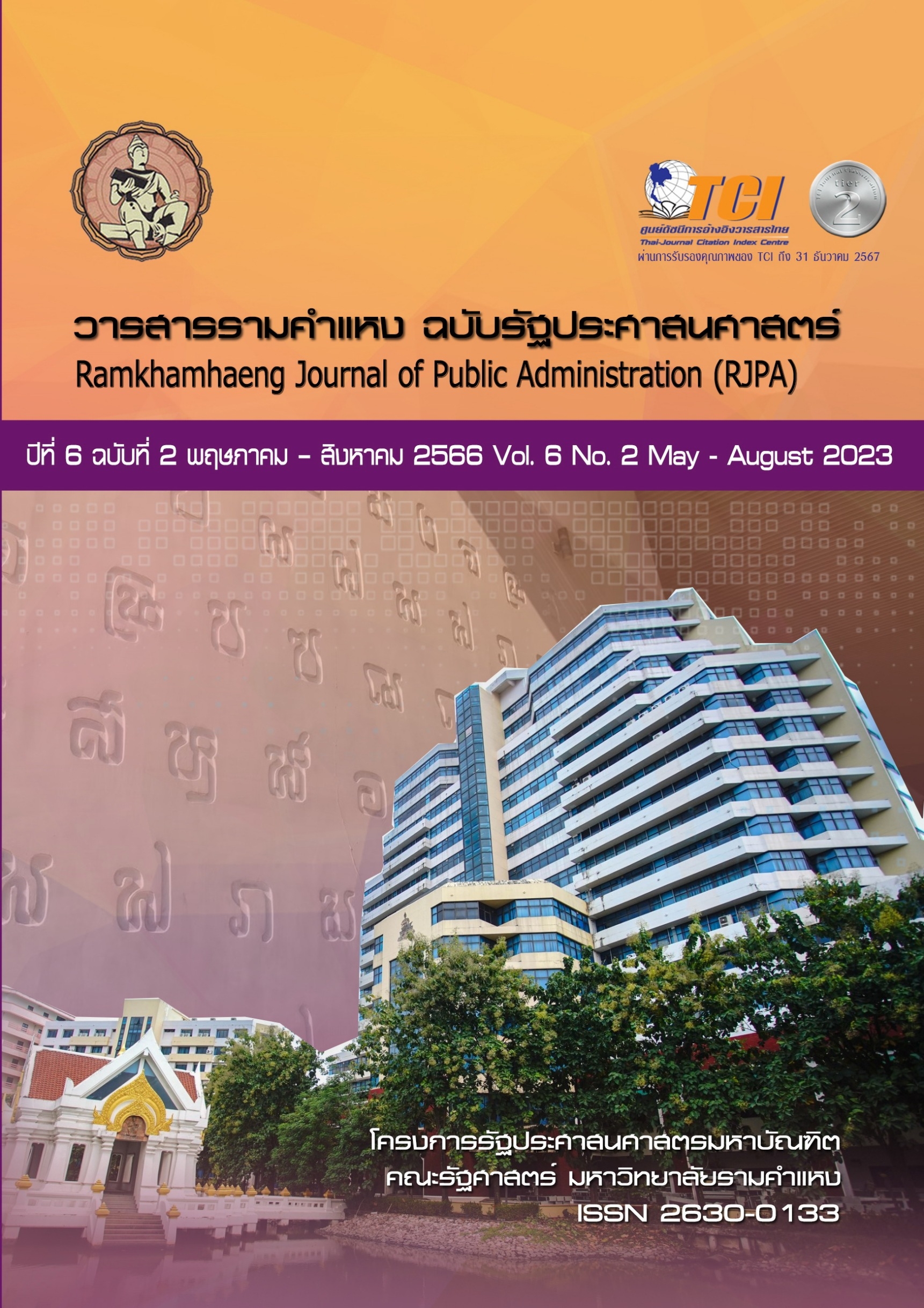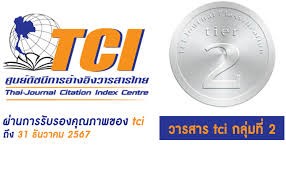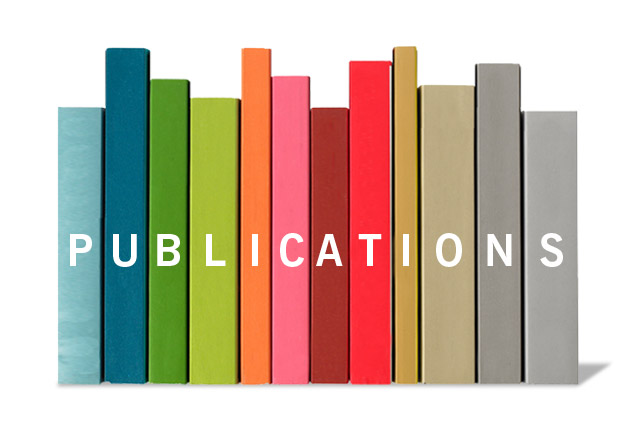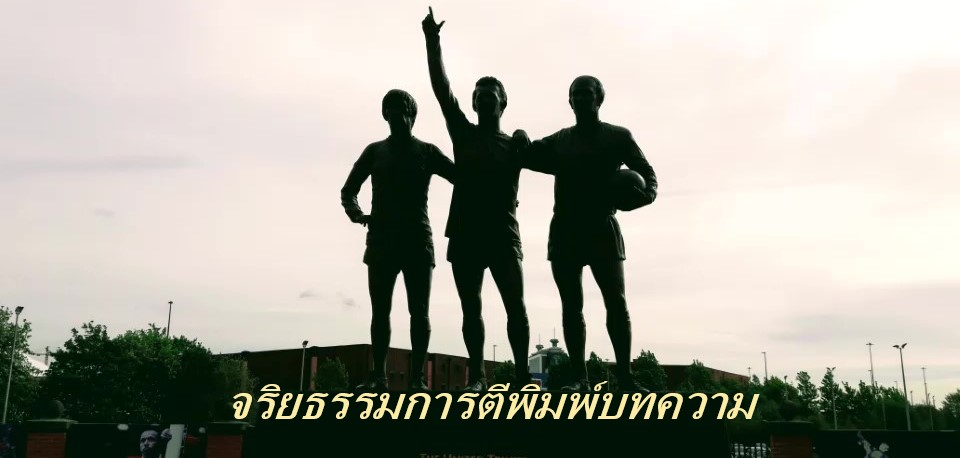บทบาทของหน่วยบัญชาการทหารพัฒนากับความมั่นคงแห่งชาติ พ.ศ. 2504-2564 (The role of the Armed Forced Development Command and the National Security B.E. 2504-2564)
Abstract
บทคัดย่อ
งานวิจัยนี้วัตถุประสงค์การวิจัย (1) เพื่ออธิบายบทบาทของกองทัพที่มีต่อความมั่นคงระหว่างประเทศ ตั้งแต่อดีตถึงปัจจุบัน (พ.ศ. 2504-2564) (2) เพื่อวิเคราะห์ภารกิจและบทบาทของกองทัพต่อความมั่นคงแห่งชาติ และ (3) เพื่อวิเคราะห์บทบาทของหน่วยบัญชาการทหารพัฒนารูปแบบโครงการพัฒนาต่างๆ ที่สนับสนุนภารกิจความมั่นคงแห่งชาติ ใช้การวิจัยเชิงคุณภาพ เก็บข้อมูลโดยการสัมภาษณ์เชิงลึกกับผู้ทรงคุณวุฒิที่เกี่ยวข้อง ผลการวิจัยพบว่า บทบาทกองทัพต่อความมั่นคงระหว่างประเทศ แบ่งเป็น 3 บทบาท คือ (1) บทบาทการใช้กำลังพลสู้รบเพื่อความมั่นคงของประเทศจากการรุกรานของต่างชาติ หรือคอมมิวนิสต์ (2) บทบาทในการส่งกำลังพลไปร่วมรบในฐานะมิตรประเทศ และ (3) บทบาทการส่งเสริมและพัฒนาความสัมพันธ์ระหว่างประเทศ ส่วนบทบาทกองทัพที่มีต่อความมั่นคงระหว่างประเทศตั้งแต่อดีตถึงปัจจุบัน (พ.ศ. 2504-2564) แยกออกเป็น 2 มิติ คือ ความมั่นคงแบบดั้งเดิมด้วยการใช้อาวุธยุทโธปกรณ์ และความมั่นคงรูปแบบใหม่ มิได้ใช้อาวุธสู้รบ ในส่วนภารกิจและบทบาทของกองทัพต่อความมั่นคงแห่งชาติ มาจาก 4 สถาบันหลัก คือ (1) สถาบันกษัตริย์ (2) สถาบันนิติบัญญัติ (3) สถาบันฝ่ายบริหารหรือรัฐบาล และ (4) สถาบันทหาร โดยบทบาทของหน่วยบัญชาการทหารพัฒนาในรูปแบบโครงการพัฒนาที่สนับสนุนความมั่นคงแห่งชาติใน 3 ลักษณะ คือ (1) เป็นตัวเชื่อมโยง (2) เป็นตัวร่วมปฏิบัติการ และ (3) เป็นผู้ส่งเสริม โดยการสนับสนุนโครงการฯ ใน 5 รูปแบบ คือ (1) ความมั่นคงทางเศรษฐกิจ (2) ความมั่นคงทางสังคมวัฒนธรรม (3) ความมั่นคงทางทางเทคโนโลยี (4) ความมั่นคงทางการเมือง และ (5) ความมั่นคงทางของมนุษย์
Abstract
This qualitative research aimed to (1) explain the roles of the military towards international security from B.E. 2504 to 2564; (2) analyze mission and roles of the military towards national security; and (3) analyze the roles of the Armed Forces Development Command through development projects that support national security mission. Data collection employed was expert in-depth interview. The results revealed that there were 3 roles of the military towards international security, including (1) the roles of military combat against either external intruders or communists for national security reason (2) the role of military alliance deployment and (3) the role of international promotion and development. Military roles towards international security from B.E. 2504 to 2564, however, were divided into 2 aspects: traditional security and non-traditional security. Military mission and roles, in addition, served 4 core institutions: monarchical institution; legislative institution; government; and military. The roles of the Armed forces Development Command through the development projects were being as (1) a linkage (2) a collaborator and (3) a supporter by promoting 5 development project patterns included (1) economic security (2) socio-cultural security (3) technological security (4) political security and (5) human security .




 Publication Policy (นโยบายการตีพิมพ์บทความ)
Publication Policy (นโยบายการตีพิมพ์บทความ) Publication Ethics (จริยธรรมการตีพิมพ์บทความ)
Publication Ethics (จริยธรรมการตีพิมพ์บทความ)